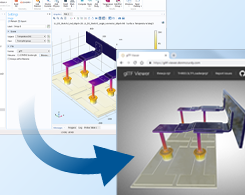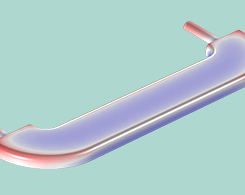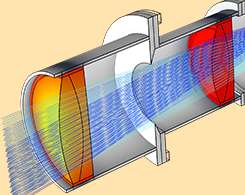Blog Posts Tagged Technical Content

Using Discontinuous Meshes for Conjugate Heat Transfer Modeling
You can use different discontinuous meshes in neighboring domains in COMSOL Multiphysics®. This capability comes in handy, particularly when modeling conjugate heat transfer problems.

Global Modeling of a Non-Maxwellian Discharge in COMSOL®
Keep reading for a demonstration of how to model a non-Maxwellian discharge with the Boltzmann equation in the two-term approximation using COMSOL Multiphysics®.

How to Export (and Share) Your 3D Result Plots as glTF™ Files
Wow your project stakeholders by sharing your 3D COMSOL Multiphysics® results as glTF™ files. We show you how to export plots and share them in third-party graphics viewers.

The Art and Science of Electrochemical Plating
Electrochemical plating, a surface finishing technique used in the automotive, electronics, corrosion protection, aerospace, and defense industries, is both an art and a science. Let us explain.

How to Activate Material in Simulations of Manufacturing Processes
Do you model manufacturing processes such as welding or additive manufacturing? You can activate or deactivate a material in a material deposition simulation using specialized functionality.

Course: Defining Multiphysics Models
There are 3 approaches to setting up a multiphysics model in the COMSOL® software: Fully automatic, manual with predefined couplings, and manual with user-defined couplings. Here, we discuss #1.

How to Perform a STOP Analysis with COMSOL Multiphysics®
Interested in structural-thermal-optical performance (STOP) analysis? We go over the theory, background, and how to perform such an analysis in the Ray Optics Module.

Understanding Classical Gray Body Radiation Theory
Imagine how efficient an incandescent lamp with an infrared suppressing black body filament would be. Alas, classical gray body radiation theory tell us this “dream lamp” is an impossibility…
